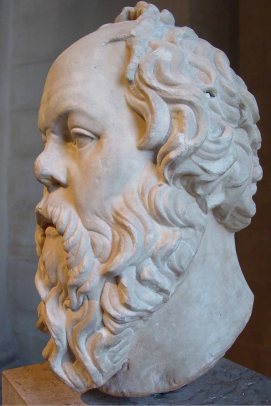“Interestingly enough, philosophers have long been in the business of offering advice on how to be happy. Or at least not too sad.” Spinoza is one of the great philosophers offering advice on how to be happy: “As Spinoza saw it, people are slaves to their emotions and chained to what they love, such as fame, fortune and other people. This inevitably leads to sadness … .” In Spinoza, Self Help and Agency, Mike LaBossiere explains Spinoza’s advice about how we can free ourselves from our emotions … and then points out “one crushing and obvious problem with Spinoza’s advice.” Along the way he makes quite a few interesting points about free will and determinism.
happiness
Happy … the Epicurus mix
Alain de Botton says that while previous philosophers wanted to know how to be good, Epicurus wanted to know how to be happy. “Even today, Epicurus remains an indispensable guide to life in advanced consumer capitalist societies because advertising – on which this system is based – functions on cleverly muddling people up about what they think they need to be happy. An extraordinary number of adverts focus on the three very things that Epicurus identified as false lures of happiness: romantic love, professional status and luxury.”
What does it mean to be happy?
Happiness and its discontents. Is happiness being satisfied with your life? Is it pleasure and the absence of pain? According to Daniel Haybron, it’s an emotional state. Happiness fulfills our needs as persons. “What sorts of needs are we talking about? Among the most important sources of happiness are: a sense of security; a good outlook; autonomy or control over our lives; good relationships; and skilled and meaningful activity. If you are unhappy, there’s a good chance that it’s for want of something on this list.”
